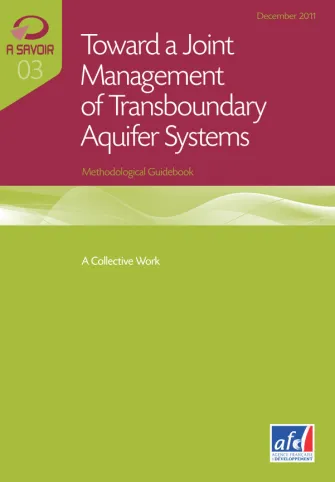Share the page
Toward a Joint Management of Transboundary Aquifer Systems
Published on

Aquifer systems, which can contain a major part of the accessible water resources of a country, are often imperfectly known. However, and much more commonly than transboundary rivers, many aquifers are shared between several countries that use this resource in an independent and generally intensive manner, for supplying drinking water and for industrial purposes, and especially for irrigated agriculture. The use of such resources is often poorly controlled and, in many cases, leads to over-pumping and pollution phenomena; these in turn can cause local tensions, which can even escalate into crises and conflicts between countries. For this reason, it is necessary today to improve our knowledge and understanding of such aquifer systems, and to promote a collaborative, equitable and sustainable management of these resources. This is the objective of this Methodological Guidebook, which presents an overview of the various types of instruments that can be used for obtaining the required knowledge, and proposes a progressive, many-sided and pragmatic approach to the management side of the problem. This should help in reaching the necessary objectives from a viewpoint of serving the common interest of all involved parties.
Useful Information
-
Authors
-
COLLECTIF
-
Edition
-
3
-
Number of pages
-
122
-
ISSN
-
2105-553 X
-
Collection
-
To Know
-
Other languages
